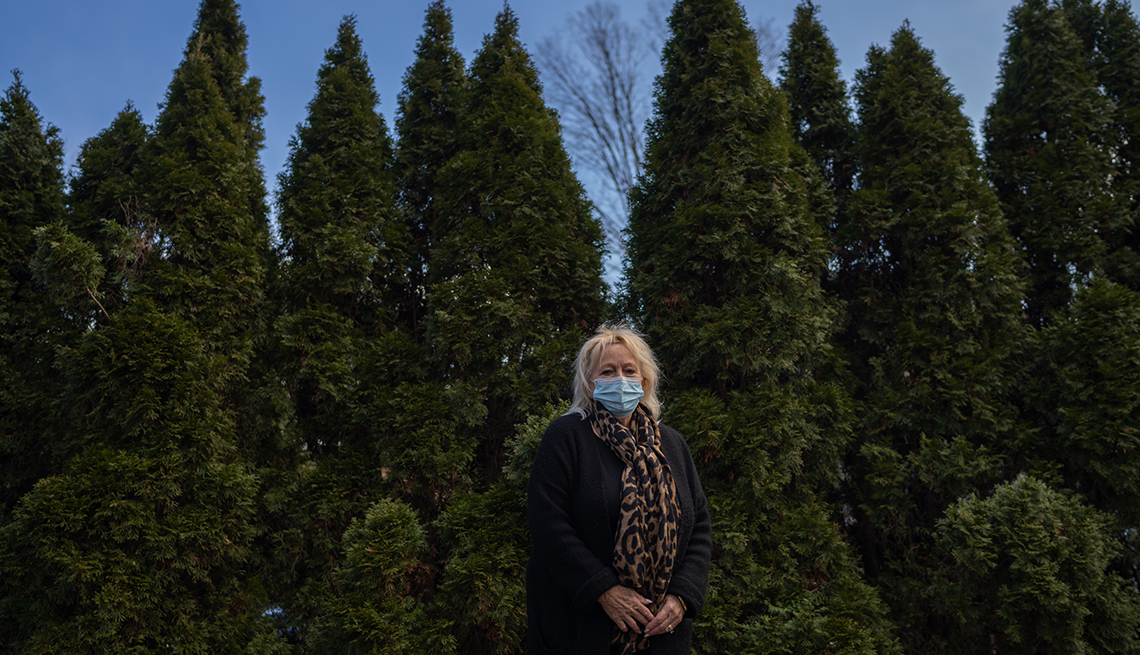AARP Hearing Center

Before the coronavirus pandemic, Sharon Echtman visited her husband, Joseph, 71, who is legally blind and has Alzheimer’s disease, at his nursing home twice a day.
Echtman, 67, of Deep River, took him for walks and car rides, brought him food and made sure he ate and showered. But when the state banned in-person visitors at long-term care facilities in March, his condition deteriorated quickly.
“From March to July he lost over 30 pounds,” she said. “He wasn’t walking. He was in a wheelchair. He had terrible anxiety issues and depression.”
Connecticut began allowing indoor visits in September, requiring that visitors wear masks, practice hand hygiene and maintain six feet of distance from others, among other restrictions.
But some family caregivers say nursing homes haven’t been consistently following state and federal guidelines.
More than two-thirds of the state’s coronavirus deaths have been in long-term care facilities, compared with a national rate of around 40 percent.
AARP Connecticut is urging state lawmakers to put long-term care reform at the top of the agenda during this year’s legislative session.
A working group that includes patient advocates and lawmakers is pushing for lower patient-staff ratios, higher pay for workers and better access to personal protective equipment and testing.
“Nursing home residents died at higher rates than any other population during the pandemic. They deserve better than this,” said Anna Doroghazi, advocacy director for AARP
Connecticut.
Fighting isolation
State Sen. Kevin Kelly (R-Stratford), ranking member of the Senate Aging Committee, said he is pushing for a “patient-centered care bill of rights” that would guarantee that family members could visit, as long as facilities practiced safety protocols.
“You know, as a loved one, when your family member is having difficulties,” he said. “You need your eyes and ears there to make sure everyone is doing what they’re supposed to do.”
State Rep. Catherine Abercrombie (D-Meriden), House chairwoman of the Human Services Committee, is among those who would like to see relaxed visitation rules for family members.
“If the pandemic has shown us anything, it’s shown that the isolation for families and their loved ones has been detrimental to the health of the residents in these facilities,” she said. “I think with proper protocols, we could have done visitation earlier.”
A report that the state commissioned to examine its nursing home response found a 15 percent increase in the number of residents reporting depressive symptoms between mid-April and mid-May. There was also a rise in significant unplanned weight loss.
In addition to asking legislators to protect nursing home residents through improved staffing levels, continued virtual visitation, and permitting residents to install cameras in their rooms, AARP is continuing to push for programs that allow people to age at home.
AARP Connecticut is collecting stories from family caregivers and nursing home residents impacted by COVID-19. Share your story at ct@aarp.org and learn more about AARP’s advocacy work.
Natalie Missakian is a writer living in Cheshire.
More on Long-Term Care































































